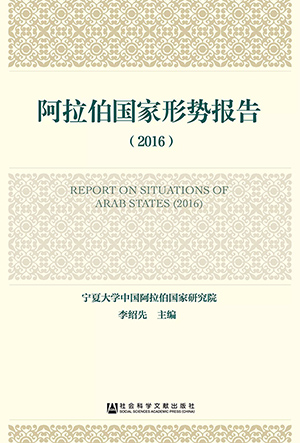

 |
The Middle East has for the first time become a key part of China’s global strategy, as the region is increasingly intertwined with the Middle Kingdom in East Asia, according to a report published in Beijing on April 1.
The report pointed out that China is the only major power that has not made significant mistakes on Middle East policy in the past 20 years, as the nation stays proactive in economic policy but cautious and conservative when it comes to political security.
“Syria and Iraq, the heartland of the Arab world and the Middle East, whose political orders have been running since World War I, are close to breaking down. The Islamic State remains rampant. More than half of Syrians are now refugees. Kurdish regions in Iraq present more and more as a sovereign state. Chaos in the Arab world has a great impact on the world order; its future development and prospects will keep attracting global attention,” the report stated. It was jointly issued by the Arab Countries Institute at Ningxia University and Social Sciences Academic Press.
As China’s role and presence in global affairs grows, so too does its responsibility to weigh in on the tense regional conflicts in the Middle East, which affect the whole world, according to the report.
“For the first time in history, China simultaneously possesses important political, economic and security interests in the Middle East,” the report noted, calling for a complete, clear and consistent policy on the region.
The report observed that the U.S. has been resolute in absenting itself from the region, while Russia has demonstrated a consistent will to intervene. However, the two major powers were in tacit agreement on fighting ISIS and the Syria issue. Specifically, the report warned that ISIS is now like a pent-up beast, putting up a desperate fight, while also changing its strategy to launch separate, solo attacks. This means that the international community should not only brace for the return of terrorism, but also focus on fighting religious extremists.
The report also noted that Islamphobia, which rose from anti-terror campaigns due to a misunderstanding of the difference between Islam and extremist religious views, could in fact worsen the situation and ultimately benefit terrorists.
 Fire brigade in Shanghai holds group wedding
Fire brigade in Shanghai holds group wedding Tourists enjoy ice sculptures in Datan Town, north China
Tourists enjoy ice sculptures in Datan Town, north China Sunset scenery of Dayan Pagoda in Xi'an
Sunset scenery of Dayan Pagoda in Xi'an Tourists have fun at scenic spot in Nanlong Town, NW China
Tourists have fun at scenic spot in Nanlong Town, NW China Harbin attracts tourists by making best use of ice in winter
Harbin attracts tourists by making best use of ice in winter In pics: FIS Alpine Ski Women's World Cup Slalom
In pics: FIS Alpine Ski Women's World Cup Slalom Black-necked cranes rest at reservoir in Lhunzhub County, Lhasa
Black-necked cranes rest at reservoir in Lhunzhub County, Lhasa China's FAST telescope will be available to foreign scientists in April
China's FAST telescope will be available to foreign scientists in April "She power" plays indispensable role in poverty alleviation
"She power" plays indispensable role in poverty alleviation Top 10 world news events of People's Daily in 2020
Top 10 world news events of People's Daily in 2020 Top 10 China news events of People's Daily in 2020
Top 10 China news events of People's Daily in 2020 Top 10 media buzzwords of 2020
Top 10 media buzzwords of 2020 Year-ender:10 major tourism stories of 2020
Year-ender:10 major tourism stories of 2020 No interference in Venezuelan issues
No interference in Venezuelan issues
 Biz prepares for trade spat
Biz prepares for trade spat
 Broadcasting Continent
Broadcasting Continent Australia wins Chinese CEOs as US loses
Australia wins Chinese CEOs as US loses